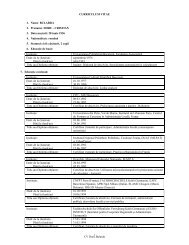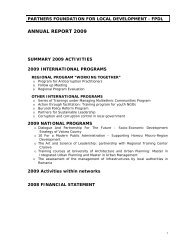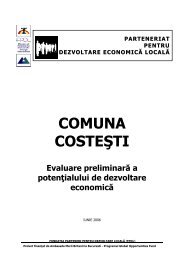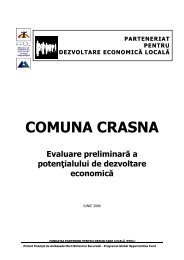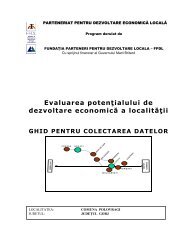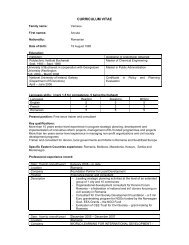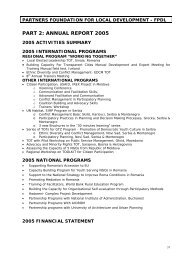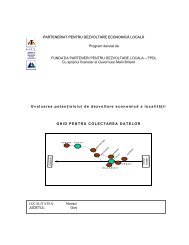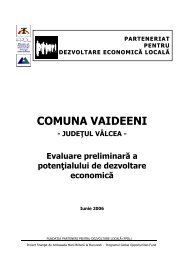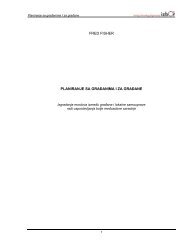Organizational Development: A Manual for Managers and ... - FPDL
Organizational Development: A Manual for Managers and ... - FPDL
Organizational Development: A Manual for Managers and ... - FPDL
You also want an ePaper? Increase the reach of your titles
YUMPU automatically turns print PDFs into web optimized ePapers that Google loves.
them <strong>and</strong> changing the rules of the game. At the same time, they are also dem<strong>and</strong>ing more<br />
meaning, more c<strong>and</strong>our, <strong>and</strong> more fulfilment from their work. The organization must adapt <strong>and</strong><br />
grow <strong>and</strong> learn new ways to get the job done. The traditional organization needed only the bodies<br />
of employees doing their clearly defined job <strong>and</strong> not asking questions. Today’s workplace needs<br />
employees who can make decisions, invent solutions to problems, take initiative, <strong>and</strong> who are<br />
accountable <strong>for</strong> results.” (Scott <strong>and</strong> Jaffe, 1991) Instead of keeping processes <strong>and</strong> people under<br />
tight control, managers should create an environment where people want to be responsible <strong>and</strong><br />
are free to take actions. Real teams are the answer, of course.<br />
For example, if the team goes to the boss to get special permission to receive some additional<br />
materials from the store <strong>and</strong> then they receive the materials, they may waste them, because it was<br />
already justified <strong>and</strong> approved by the boss. In another case, a team may be free to go to the store<br />
at any time <strong>and</strong> receive any materials, but everyone agreed that the price of materials in excess of<br />
a normal amount would be deducted from the total salary or premium of the group. Their actions<br />
are not under direct control any longer; they may do whatever they want - but they will never<br />
misuse it, because they are responsible <strong>for</strong> the results. Their responsibility is the price <strong>for</strong> their<br />
freedom of action. People want to feel free in their actions. Thus they accept to be responsible. It is<br />
a great load off of a manager’s shoulders.<br />
In most modern organizations, a manager cannot actually control what people do most of the time.<br />
The only way to control what is going on is to control the results. And, to underst<strong>and</strong> <strong>and</strong> accept<br />
that subordinates are free, within an allowed scope, to do whatever they want, as long as their<br />
results are good. Being the boss does not mean controlling what people are doing at any given<br />
moment, as used to be true in age of conveyor belts. Now it means controlling what an<br />
organization (or a part of an organization) is doing in term of results, satisfied customers, costs,<br />
etc. Responsibility to choose specific actions, that was once taken off workers <strong>and</strong> given to<br />
managers by Taylor, is to be given back to the worker. And so, the archaic notion of ‘humanization’<br />
in the workplace has been rejuvenated, <strong>and</strong> is again in style.<br />
The main barriers <strong>for</strong> empowerment <strong>and</strong> teamwork (which is an essential precondition <strong>for</strong><br />
empowerment), relate to a way of thinking cultivated by hundreds of years of the hierarchical<br />
pyramid as the main organizational pattern. Any step in the direction of empowerment is a step<br />
away from the pyramid, although it does not require an immediate change in the bureaucratic<br />
structure - just building in oasis of real teamwork within a hierarchical structure. This may be<br />
possible if divisions are built around processes <strong>and</strong> products, not functions.<br />
120



